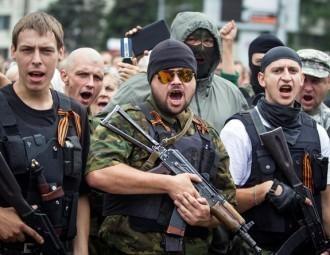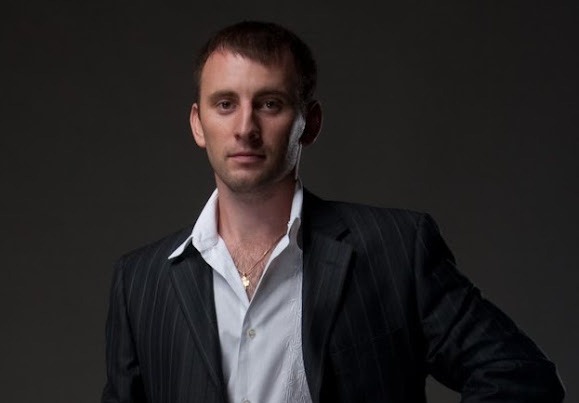Donbas emigrant: Bandit groups are dividing Donetsk bit by bit

A guy from Donetsk came to Belarus after hearing Lukashenka’s invitation on TV, but was denied refugee status. At the Donetsk status referendum he voted for the autonomy, but can live there no longer.
Artem Chebanenko from Donetsk saw the TV broadcast where the President of the neighboring country Aliaksandr Lukashenka promised to give Ukrainians shelter in a stable Belarus. He decided to use this kind invitation, left his business and girlfriend in the native city and came to Minsk in the beginning of June. His relatives came to Belarus a month later.
Artem is surprised that the Belarusan authorities have denied his and other Ukrainians’ refugee status, but he doesn’t give up. He believes that it is still better to live in a quiet Belarus with a 500-dollar salary than to live in Donetsk torn apart by criminal gangs, where militants are marching across the streets, and peaceful citizens are afraid of leaving their apartments.
The reporter of the EuroBelarus Information Service discussed the situation in Donetsk and the hardships of life in emigration with the manqué citizen of Donetsk People’s Republic.

- When and why did you decide to leave Donetsk?
- I left on June 7 because I lost my clients in my Driving School and didn’t see any point in wearing the seat out of my pants and doing nothing; so I left for Belarus.
- Why to Belarus and not to more quiet Ukraine’s regions?
- I considered several countries. But Belarus has most important things – stability, safety and middle class, so I made my choice basing on these criteria and the presence of Russian-speaking population.
At the Belarusan border I heard mocking remarks from the customs officials, who were saying that I was running off instead of fighting. I asked the customs: “What should I fight for, if Ukraine is declaring one thing on TV and acts absolutely differently? There is no truth”.
One more reason why I left Donetsk is people with tommy guns on the streets, who are taking away cars. How one can live in such country?
- What is happening in Donetsk now?
- Armed people from Kramatorsk and Slavyansk have gathered there. People take bus to work with guns. Some people are against separatists, some are for them, maybe because these people don’t understand what they are to expect in Donetsk People’ Republic.
For example, a lot of people died in Slavyansk; bodies are lying on the streets, and one time under the firefight it was impossible to take away the dead.
An airport in Donetsk is bombed and destroyed; hypermarket “Metro” is plundered. Civilians have been killed at the railway station; there are a lot of people in camouflage in the city.
There was no shooting in my city district, but my parents heard the shooting and seizure on the boarding house “Shachterskie Zori” (“Miners’ dawns”).
Thankfully, only outskirts of Donetsk are bombed.
Because of the hostilities enterprises stop working; there are a lot of unemployed now. Racket at the enterprises became popular; apart from Donetsk People’s Republic (DPR), bandit groups started dividing Donetsk bit by bit. Bandit groups are collaborating with DPR, which might not want them to rob anyone, but they cannot break off this habit.
Thus, there is no business development now in Donetsk; you only can think of your own safety. But I don’t want to be scared or fight for anyone; that is why I left.
One can exist in Donetsk now; but one cannot lead a normal life there. I left my girlfriend there, and it’s very hard for me. But I have to move on.
- What was the welcome that Belarus gave you? Did you have much trouble with getting a refugee status?
- I did have much trouble; documents are required everywhere, and upon making new documents new problems appear.
Before I sorted things out, I obtained a temporary registration. I tried to get a refugee status, but was denied despite the fact that I’m from Donetsk. I asked about the reason, and the answer was: you don’t have the resolution that permits us to take your documents.
Lukashenka’s appearance on TV is one thing, and the reality is another. There is no official document, which would give possibility to get a refugee status.
My brother with his wife and two children have recently arrived. It is hard to be with the family here, as you have no social protection when it comes to kindergartens and medical care. I don’t earn money yet; I only spend it on my employment.
But still, stability and order are reigning in Belarus, and that is the most important thing. Though prices on food are huge; one earns 500 dollars, and spends all the salary on rent.
- But let us go back to the subject of our conversation. In your opinion, who are the people with guns in Donetsk?
- I can’t give an answer to your question, because I don’t know who stands behind this.
There is no doubt that DPR is being funded; in my subjective opinion it is sponsored by Russia.
Russia will benefit from having insiders in Donbas. Even if Ukraine becomes EU, it will be collaborating with the US, and the latter will bring its troops to Ukraine’s territory. That is why America is fighting for Ukraine.
There is gas in Slavyansk, and rumor has it that it is already sold to Rockefellers. And gas is one of the reasons for hostilities, as it implies trillions of dollars. As I understand, there is a lot of gas in Slavyansk; but Slavyansk is a reserve, and if gas production starts there, it will be very hard to live there, and a lot of population will suffer.
I can’t understand why people do nothing in Donetsk – they should go to Kiev and stand up for their interests instead of hiding in ambush.
For now the situation in Donetsk can still be tolerated; but I think that after some time there will be some kind of serious social explosion. And only after that the situation will start changing for the better.
-
03.01
-
07.10
-
22.09
-
17.08
-
12.08
-
30.09



























